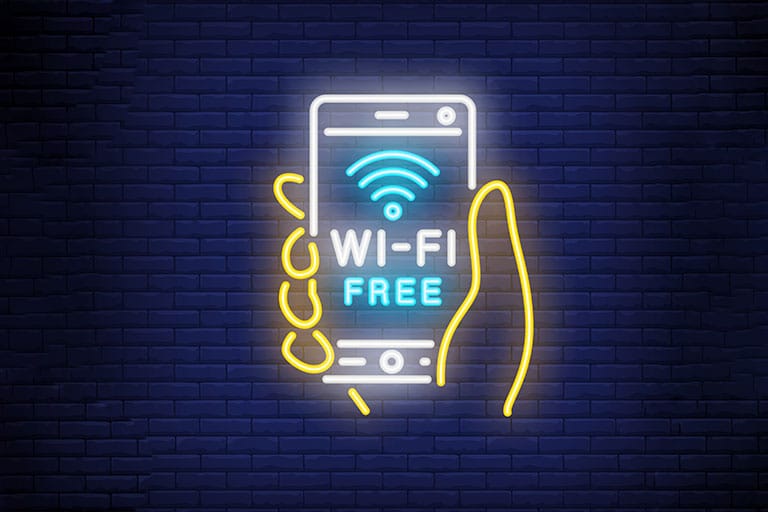Today, the internet is one of the most important tools. It allows you to experience processes that are faster, simpler, and more efficient. In addition to this, the internet leads to a significant increase in information and knowledge. As a result, it is very useful for essential sectors like healthcare and education. Public WiFi allows the internet to be more accessible to a wider number of people. This means that public places like airports, libraries, and cafes allow everybody to access the internet. However. This type of connection has its own dangers. Here’s why you should be aware of the risk of using public WiFi.
Table of Contents
5 Disadvantages Why you shouldn’t use Public WiFi
The internet being free and accessible to all seems like an ideal situation. However, it’s important to be aware of the consequences of this. The major drawbacks include malware attacks, session hijacking, and information theft. Here’s what you should keep in mind.
Increased Risk of Malware
One of the greatest disadvantages of using public WiFi is malware. When you connect to such a network, it becomes easier for hackers in your vicinity to attack your system. This also means that the chances of viruses are also rampant. These are very serious threats and can lead to data leaks and hacks.
Thus, avoid public networks and consider services like Cox WiFi instead. With this, you’ll be more secure and safe. In addition to this, a private network also increases security and reduces the chances of data theft. You can also download a Virtual Private Network or a VPN to enhance protection. Once you enable this, shady sites or suspicious links won’t be able to access your information as easily.
Theft of Private and Sensitive Information
This is also one of the major cons of using public WiFi. With an increased risk of both malware and hackers, there’s a greater chance of your information being stolen. This is especially dangerous if you have stored important and sensitive information on your device. When you use a public network, this can fall into the wrong hands and cause great damage to you or your business.
Therefore, make the most of services like Cox WiFi plans to enjoy a secure network. In addition to this, make sure that you have downloaded anti-virus software. This will effectively prevent external forces from stealing your information. Moreover, you will be updated on any suspicious activity that the software detects. The good news is that there are a large number of high-quality anti-virus software available in the market today. Here are the top 5.
- Norton 360 Deluxe
- Trend Micro Maximum Security
- Kaspersky Total Security
- Sophos Home Premium
- ESET Smart Security Premium
- Bitdefender Antivirus Plus
- McAfee Internet Security
- Greater Session Hijacking
With a public network WiFi, there’s also an increased risk of session hijacking. This is especially dangerous because it allows hackers and attackers to access your system. In fact, they can even intercept your device’s details and monitor your activity. With your system’s details, the hacker can easily access your connection and use it for malicious purposes.
In order to reduce public WiFi risks, it’s important for you to not share anything private while using this connection. In fact, avoid making online bank transactions with this network. This can lead to greater data hacks. Moreover, ensure that everything is password protected. Keep your devices and your applications secure with strong passwords. This can help lower the risk of malware.
Enhanced Cyber Attacks
Malware can present itself in several forms. These include ransomware, viruses, adware, trojan horses, and worms. If you want to avoid such attacks, use tools like 2FA or Two-Factor Authentication. With this, public WiFi security risks can be reduced considerably. This method acts as an extra layer of protection. When you log in to a website or application, you will receive a code via text or email. Once you enter this, only then will you be able to access the said website.
The Bottom Line
Public WiFi has a large number of disadvantages that you should keep in mind to avoid issues like cyber attacks, malware, viruses, and session hacking.
FAQs
What Security Risk does a Public WiFi Connection Pose?
This leads to enhanced cyber attacks, session hijacking, information theft, and malware.
Is it Safe to make Purchases on Public WiFi?
Avoid using such networks when making transactions or purchases.
How to use Public WiFi Safely?
To use this network safely, use a VPN and download antivirus software. You can also use Two-Factor Authentication.
Why shouldn’t you use Public WiFi?
This leads to enhanced cyber attacks, session hijacking, information theft, and malware.

